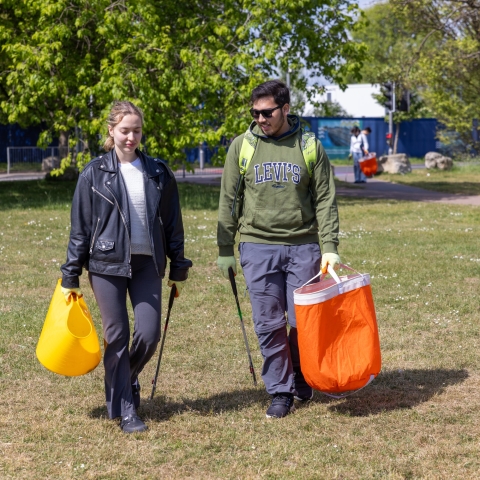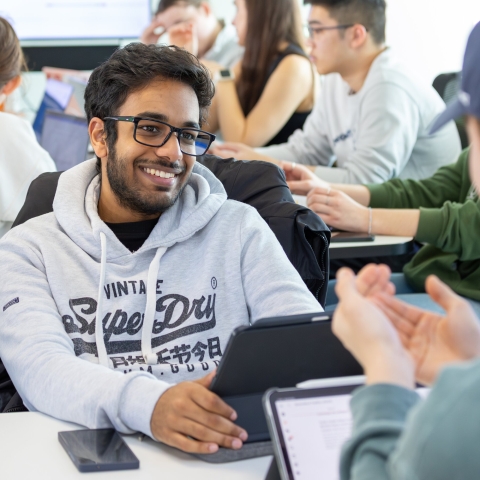
Breaking into this sector can be highly competitive, so work experience could be a significant factor to set you apart when applying for graduate roles. Gaining experience not only builds your knowledge but also helps you develop valuable transferable skills that showcase your enthusiasm and dedication to the field.
However, finding experience will take time and effort; employers receive many CVs every week so you will have to work hard to stand out from the crowd. You can find out more about how to create a targeted CV through our website.
Types of Opportunities
Below are some examples of the different types of opportunities to gain experience while you study.
Building up your volunteering hours while you study is ideal in demonstrating your commitment to the industry. You can support community initiatives, volunteer at one-off events or work on an ongoing project with a local not-for-profit. Seize any opportunity to get involved in local community projects to help you develop your work experience. Our Volunteering Bank provides local opportunities to undertake alongside your studies.
You can also get involved in relevant university projects through the different groups and societies via the Student Union. This is a good way of demonstrating your motivation and interest in this area of work.
Please be aware that some international volunteering opportunities may have costs attached so it is important to check all details thoroughly.
Placements will give you a long-term look at an organisation, and help you to build contacts and experience.
On some degrees, work placements are part of the programme, whilst on others you can choose to complete a placement as one of your modules. To learn more about completing a placement, you can contact the Placements team in the Careers & Employability Service.
Learn more about taking a placement
You can also choose to take a Self-Employed Placement. This allows you to work for yourself during your placement year and receive support from the University's Student Startup Team. You will have access to funding opportunities, networking events and workshops.
Many larger charities and nongovernmental organisations (NGOs) offer internships, open days and taster experiences. The charities and NGOs offering internships, listed below, will give you an idea of the opportunities that may be available; you will need to do thorough research to identify further specific opportunities:
Create your own experience
You can consider developing your own experience. The key to success is to prepare thoroughly, do your research and seek support from the Careers and Employability Service where needed.
Starting your own social enterprise
If you have a practical idea of how to help your community, protect your local environment or solve a problem in society then setting up a social enterprise might be a great way of showing your proactive and charitable attributes. A social enterprise is the ability to do good through doing business rather than through charitable donations, for more information make an appointment to talk to our Student Startup team.
Getting involved in online activism
In today’s world, online activism has become a powerful tool for raising awareness, campaigning for change and sparking real world action. While opinions differ on its effectiveness, when online activism is used in a considered manner, it can be a useful way to gain experience. Whether you’re launching a petition, starting a blog to highlight a cause, or using online platforms to build and organise a movement, online activism can help to amplify your voice. Read the below resources for more information:
Online activism campaigns - article from Don’t Panic which highlights successful online activism campaigns
Digital Activism: The Good, the Bad and the Future - useful article from the Humanitarian Academy for Development that highlights the pros and cons of digital activism
Explore the Charity and Third-Sector Career Guide
Charity and third sector career guide
Your guide to building a career in charities and the third-sector.

Getting started in charities and the third sector
Take the first steps to beginning your career in charities and the third-sector.

Finding a job in charities and the third sector
Explore different ways you can find employment in charities and the third sector after you graduate.

Enable University alerts
Turn on notifications for critical updates like closures, safety alerts, and urgent service disruptions.






